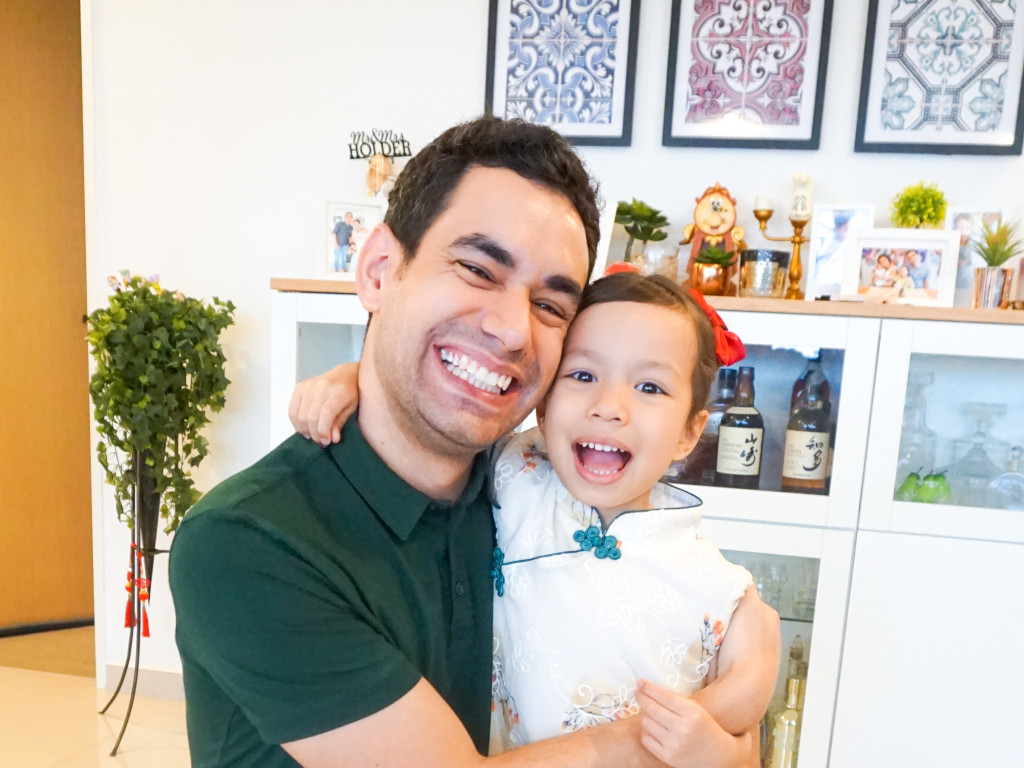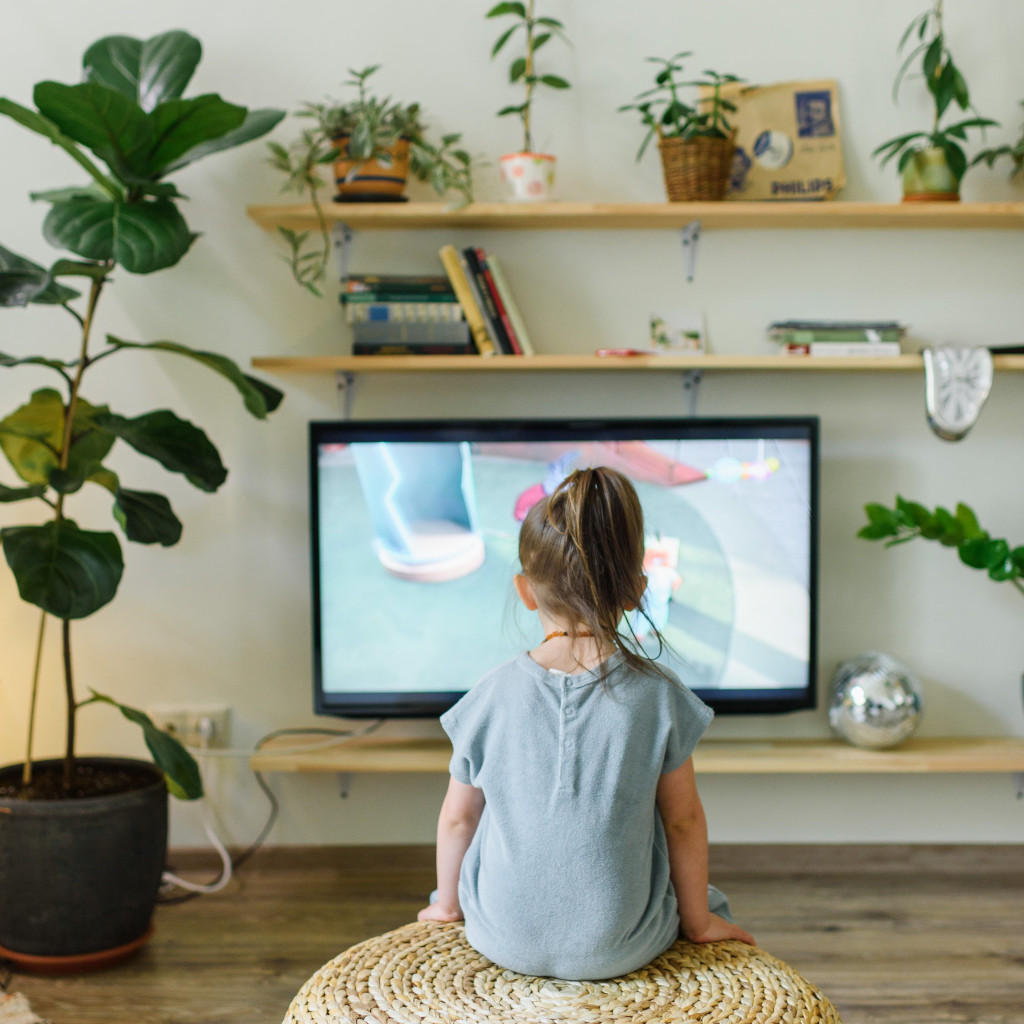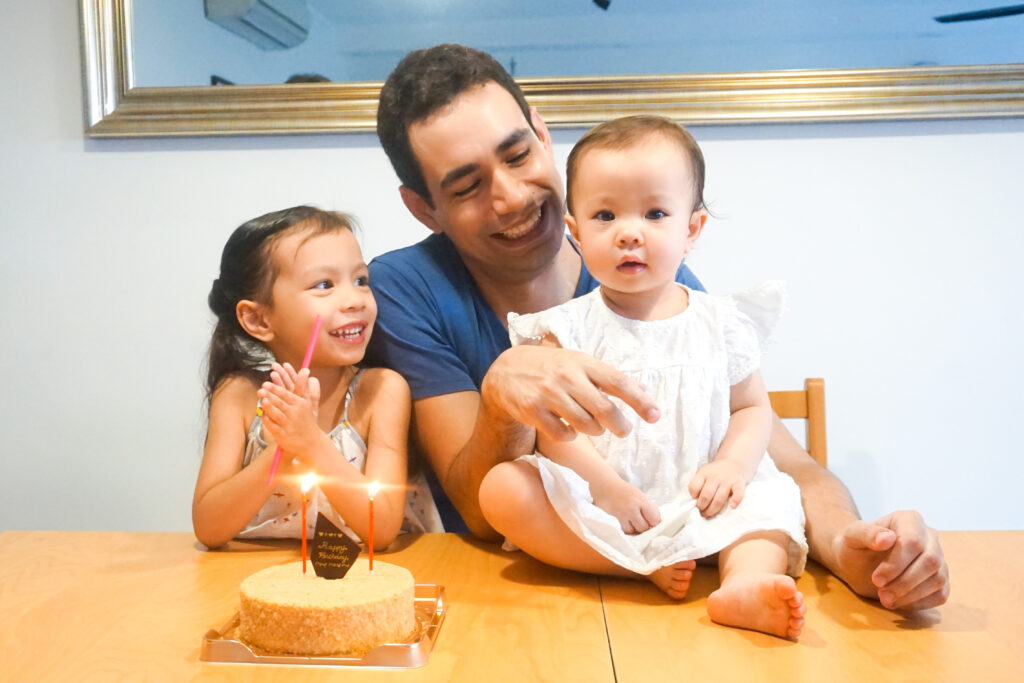SingaporeMotherhood | Parenting
November 2023
Decoding Parent-Child Dynamics: Daddy Kane & Daughter Ava

Do you have a headstrong child who resists schedules and throws a tantrum when urged to hurry? Oftentimes, whether using the proverbial carrot or stick, parents try to ‘get rid of’ such unwanted traits in their children. However, developmental psychologist Lydia Lim believes this may also deprive them of the innate strengths that accompany their personality inclinations. ‘Devaluing’ anyone doesn’t help achieve better parent-child dynamics, she says.
This was the reason she co-founded Connected, a digital resource that helps parents understand, in layman’s terms, the psychology behind the personality traits of their children. With this knowledge, you can then parent your child more effectively and foster stronger communications. It makes it easier for you to spot if your child is in distress, while children are more likely to confide in a parent they feel connected to.
(See also: DECODING PARENT-CHILD DYNAMICS: MUMMY RACHEL & DAUGHTER OIA)
In this series on Decoding Parent-Child Dynamics, we ask parents what personality trait they struggle with most in their child. They also share a little about their parent-child dynamics. Finally, Lydia breaks it down and offers personality-driven insights behind each pair. She explains how the parent-child personalities relate to each other and also curates tips and strategies each parent can incorporate into their parenting journeys.
Daddy Kane & Daughter Ava
In our second instalment, we hear from Kane Wheatley-Holder, 36-year-old content producer and father of two. His firstborn daughter, Ava, is five years old.
“Ava is a rather ‘messy’ child, comfortable with a disorganised schedule and room. She rarely wants to clean up after herself. She also doesn’t seem to feel urgency for certain routines and hates when we rush her. This is especially true for things she doesn’t find important or interesting. For example, if we’re getting ready for school or an outing, she may decide to distract herself with something else such as drawing, toys, or the television. It results in a lot of resistance and dilly-dallying.

She seems most easily triggered around the TV. If she’s watching a programme, and we tell her to turn it off and prepare for something, she may throw a tantrum. Similarly, if she’s reprimanded for bad behaviour, she may actually throw a tantrum because she was reprimanded — not necessarily for the thing in question. This causes a dynamic where we have to intentionally calm down and wait a while, before addressing it further. This has knock-on effects to the daily routine.”
(See also: TODDLER TANTRUM TRIGGERS (AND STRATEGIES TO SOLVE THEM!))
Our Parent-Child Dynamics
“I’m a rather task-driven person who likes to complete tasks quickly. This is because I want to prioritise relaxation and fun whenever possible. I would rather ‘rush to wait’ rather than ‘wait to rush’, so to speak. I don’t like being hurried or forced into urgency because I like to structure my life around a healthy mix of preparation and getting things done.
Ava seems to be the opposite. From my observations, she seems to prioritise the here and now, and her own agenda, be it personal time, playing, relaxing, and general five-year-old fancies. While I’m totally okay with that, it can be a struggle when it’s all she prioritises. It’s tough when a tantrum delays schedules, as everyone has to wait till she recovers and enters her calmer state. She also tends to fuss a lot in these situations, getting louder and louder, and finding issues with everything that we do to help.
To her credit, she does try. It’s getting better when we change a routine or introduce an element of fun. But she seems to bore easily — especially with certain snacks, shows, games, toys, activities — and will revert to her dilly-dallying state at some point.”
Personality-driven Insights
Lydia breaks it down: Ava sounds like a free-spirited child with her own sense of order, timing, and priorities, regardless of the social pressures and expectations around her. As she is only five years old, there’s a limit to her ability to articulate what her internal clock and compass is driving her towards. Kane’s sensitive and fluid responses sound like the positive foundation in helping Ava feel connected to and empathised with.
Interestingly, while it may appear that Kane’s task-driven orientation is starkly different from Ava’s, we don’t know that for sure. At least not until she reaches the stage where she is more purposeful and aware of goals and daily commitments. Currently, accurately representing Ava’s level of task orientation may not be possible, although she does seem to lack a strong attachment to the concept of needful tasks.

What is appearing to be very similar (rather than different, ironically), is that father and daughter share what Kane perfectly describes as “…I want to prioritise relaxation and fun… I don’t like being hurried or forced into urgency…”. This similarity may not be immediately obvious because Ava’s list of must-dos and to-dos isn’t oriented (yet) to responsibilities that older children and adults tend to be compelled to fulfil.
As her parents nudge her along to keep to schedule, what is evident is her inner strength of will. Combined with a fiery conviction that lends itself to passionate outbursts, Kane’s cool and calm responses seem to be exactly what Ava needs!
How The Parent-Child Personalities Relate
Lydia explains further: Ava’s free-spirited nature may seem a little too chaotic for the average socially-conscious parent to handle. However, the beauty of this is that she is hardwired with what she needs to explore life on her terms. She can approach the world according to her desires as she journeys through different seasons of her life.
Having her own inner compass, internal clock, and life-defining priorities as a distinct force within her, Ava has what it takes to push back against pressures, be it from society, peers, and yes, parents too!
(See also: WHEN SHOULD MY BABY START SOCIALISING WITH OTHER CHILDREN?)
While this bodes really well for her future, she will need guidance and support that will give her the wisdom to navigate external pressures that are likely to come at her. Kane’s mindful guidance and sensitive responses have clearly been very helpful in her development.
However, the conflicts or tensions that can arise across various scenarios are likely to continue for a period of time. This is because, until Ava becomes clearer on what she wants and is more aware of the priority she wants to accord to the different daily demands on her, the tussle and resistance may persist.

On the Bright Side
Quite a few aspects of personality-driven responses and behaviours appear to be at play here. Ava is likely to be hardwired:
- to guard her free choice
- not to take kindly to anyone attempting to direct her or dictate to her
- to let her imagination expand beyond visible and practical horizons
- to assess the trustworthiness of situations and people around her
- to fight for herself, especially when she feels that her goals and interests are under threat
- to express her opinions and sentiments very candidly and passionately
These are invaluable bright sides. And with the right guidance, Ava can harness these powerful inner resources as she grows up. However, as Kane has detailed, these can also create unintended tension and conflicts. After all, there are time-sensitive obligations to meet and fulfil — not just hers, but everyone else’s in the family too!
(See also: 5 STEPS TO TRANSFORM MORNING MADNESS INTO DELIGHTFUL MORNINGS)
Kane details taking time to help Ava recalibrate her state of mind and regulate her emotions during challenging moments. At the same time, it is important to ensure that she doesn’t unconsciously attribute her frustrations to her school, her community, the world at large, or even herself. Any hidden resentment could make her lose interest in, disengage from, or become bored with the situation, activity, or person.
Curated Tips & Strategies

Lydia shares: Kane may want to consider the following as he guides Ava:
- Take extra care with the tone of voice you use with Ava. Even non-verbal cues can contribute to her instinctively feeling the need to protect herself. Avoid comments and reminders that sound like chastisement, comparisons with others, or outright judgements on where she falls short. These are all likely to provoke a strong and fiery response.
- Help Ava shift from reacting negatively when pushed or interrupted, to appreciating the friendly reminders and timely nudges. Initiate conversations about the activities or daily chores that directly impact her. For example, discuss how showers, brushing teeth, and getting ready in a timely manner don’t just affect her wellbeing. They could perhaps also leave her more time to do what she really wants! Repeat these discussions regularly, so that she can work towards internalising her choices. This way, she can learn to react less with each nudge and appreciate the reminder more as she grows.
- Realise that development tends to progress through cycles. As Ava develops, you may need to revisit these various conversations, as the principles may play out for her slightly differently than before. Use phrases like, “Remember we talked about this before? This situation is not too different; shall we go through it again to help you decide?”. Such reminders help Ava recognise that she’s been involved in the process the whole time and her interests are covered.
- Ava is a passionate and expressive individual. So give her opportunities to role-play or pre-construct responses to different scenarios she’s likely to react to. Having these rehearsals and safe space to craft and try out different responses is important. It will help her find ways to speak her mind, stay true to herself, and yet creatively repackage the way she chooses to present herself. That way, she is valued for who she is and not misunderstood or judged unfairly.
If you relate to Kane and Ava’s parent-child dynamics, then consider applying Lydia’s tips and strategies. You can also tap into Connected for more personalised insights on your parenting journey. Otherwise, stay tuned for the next instalment of Decoding Parent-Child Dynamics, where another parent shares their real-life parenting struggles.
All content from this article, including images, cannot be reproduced without credits or written permission from SingaporeMotherhood.
Follow us on Facebook, Instagram, and Telegram for the latest article and promotion updates.





